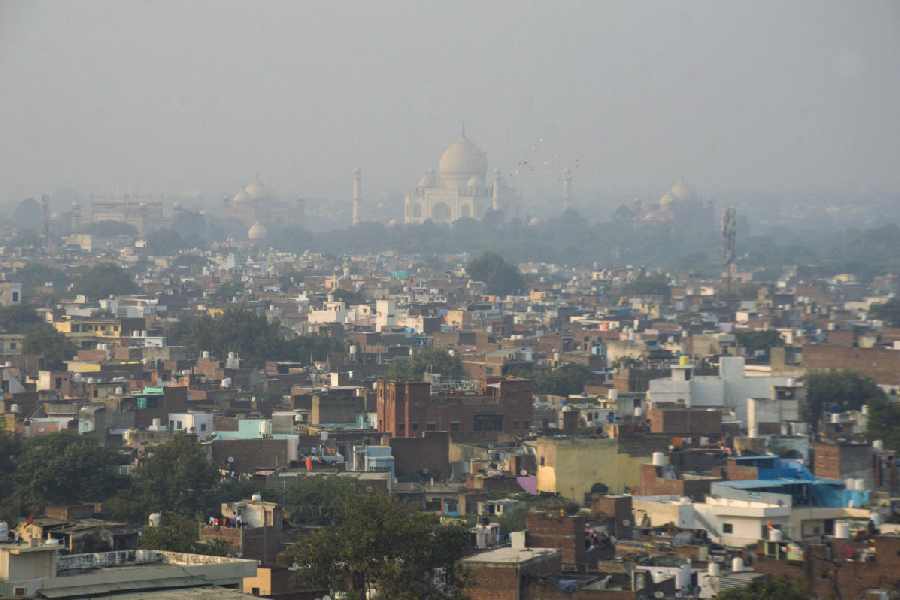The Supreme Court on Friday said it would consider on November 25 whether or not to ease the anti-pollution GRAP-4 restrictions in Delhi-NCR keeping in view the drop in air quality index levels.
A bench of Justices Abhay S Oka and Augustine George Masih expressed displeasure over the poor implementation of GRAP-4 restrictions, especially related to restricting entry of trucks carrying non-essential goods into Delhi.
First implemented in 2017, the Graded Response Action Plan (GRAP) was a set of anti-air pollution measures followed in the capital and its vicinity according to the severity of the situation.
It classifies the air quality in the Delhi-NCR under four different stage -- Stage 1 "poor" (AQI 201-300), Stage 2 "very poor" (AQI 301-400), Stage 3 "severe" (AQI 401-450) and Stage 4 "severe plus" (AQI above 450).
On Friday, the apex court appointed 13 Supreme Court lawyers as court commissioners to visit the various entry points in Delhi to ascertain whether restrictions on entry of trucks were implemented or not.
The bench was informed by Additional Solicitor General Aishwarya Bhati that the pollution level had dropped in the last two days and the AQI level was now under the GRAP-2 stage.
On Friday, the overall AQI in Delhi remained in the "very poor" category being recorded at 373.
On November 18, the apex court directed all Delhi-NCR states to immediately set up teams to strictly enforce anti-pollution GRAP 4 restrictions, making it clear that the curbs would continue till further orders.
During the hearing on Friday, the bench was informed that the enforced GRAP-4 restrictions also had an adverse impact.
"The consequences of GRAP-4 are drastic and it will have adverse effects on several sections of the society," the bench observed.
The top court would therefore decide on November 25 whether to ease the curbs imposed under GRAP-4.
It also dealt with the issue of pollution emanating from trucks entering the national capital and questioned the Delhi government for the lack of implementation of the GRAP-4 measures.
"It is very difficult for us to assume that entry of trucks in Delhi has been stopped," the bench said.
The counsel appearing for the Delhi government informed the bench there were a total of 113 entry points, including 13 for trucks.
The apex court directed the Centre and the Delhi Police to ensure setting up of check posts at all 113 entry points.
The apex court is seized of the matter related to air pollution in the Delhi-National Capital Region and the hearing is currently underway.
Except for the headline, this story has not been edited by The Telegraph Online staff and has been published from a syndicated feed.










